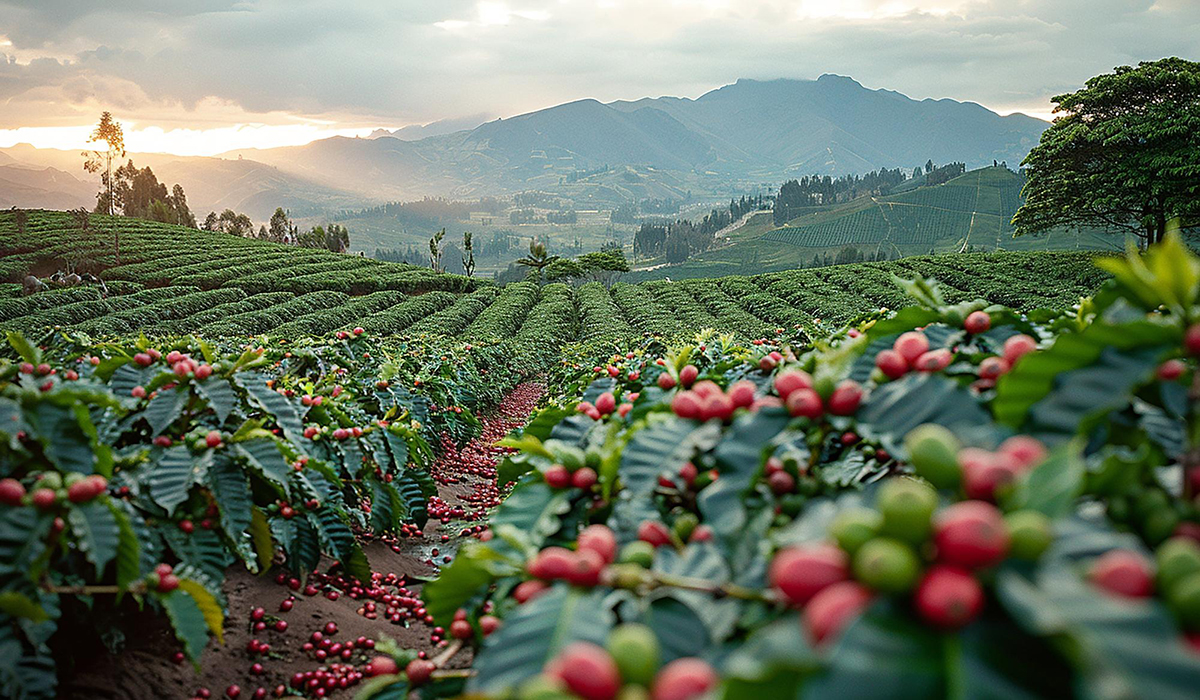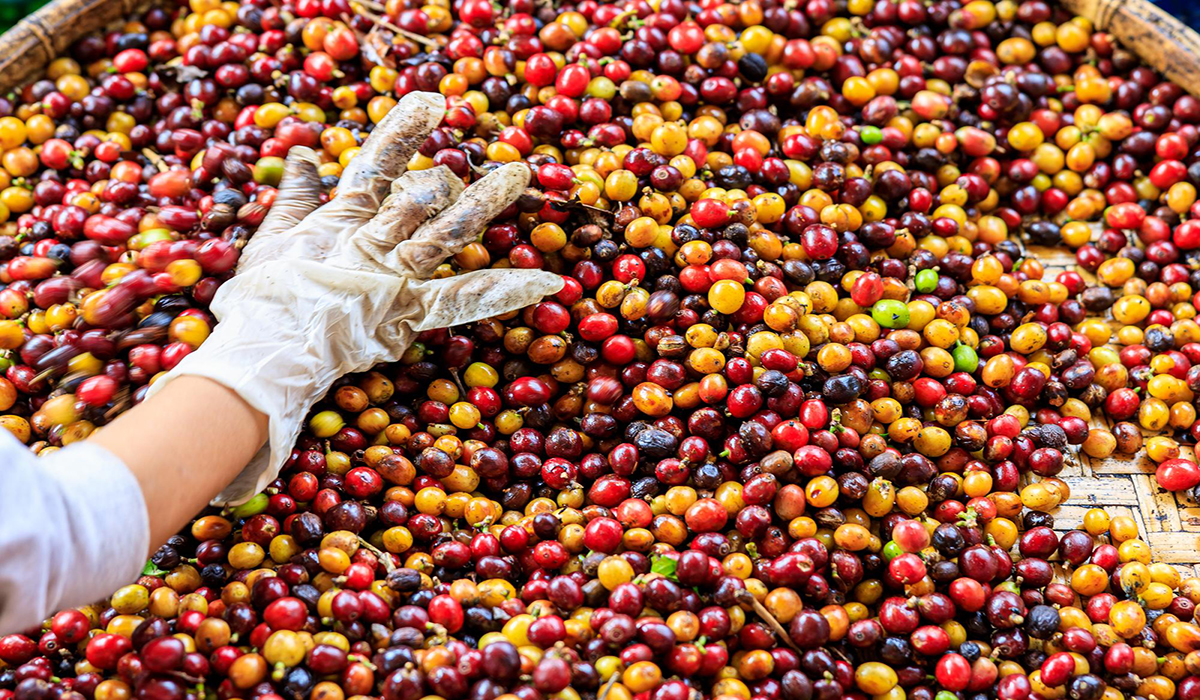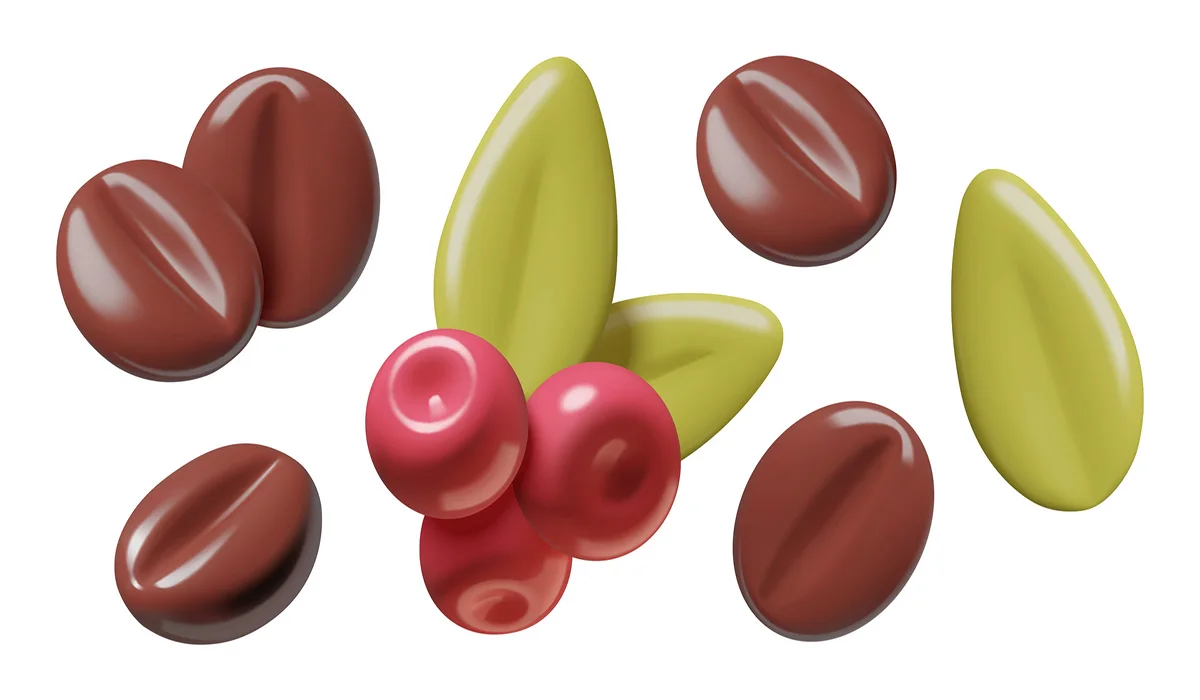The Role of Different Countries in Supplying Parto Padideh Coffee Beans

Coffee beans, this “brown gold” that wakes us every morning with its enchanting aroma, take a long journey from tropical farms to our cups. Parto Padideh Coffee Company, with its deep knowledge of this path, carefully selects its beans from five major countries:
- Brazil
- Colombia
- India
- Indonesia
- Vietnam
This geographical diversity is the key to achieving distinctive flavors suited to different tastes. Each coffee bean tells the story of its homeland. Soil, altitude, humidity, and even the neighboring trees all shape the final character of coffee.
Sourcing Parto Padideh Coffee Beans
The experts at Parto Padideh, aware of these delicate details, choose coffee beans from the best cultivation regions. Once delivered to the factory, the beans undergo strict quality control before being transformed into a flavorful cup.
Brazil: The Land of Balanced and Flavorful Coffee
Brazil, the largest coffee producer in the world, supplies much of the coffee we consume daily. With diverse cultivation regions, Brazilian coffees often have nutty, chocolatey, and sometimes caramel notes, with low to medium acidity and a medium to heavy body—making them an excellent base for many blends.
Regions such as Minas Gerais, São Paulo, and Espírito Santo are central to Brazilian production. At elevations of 800–1300 meters, these conditions are ideal for balanced growth.
Parto Padideh enhances the nutty and chocolatey tastes appreciated by many Iranians, especially in its Felicita Coffee blends and in selected products of Opera Coffee.
Colombia: The Paradise of Aromatic and Complex Coffees
Colombia is a well-known name in the world of coffee. The Andes mountains and favorable climate create ideal conditions for cultivating high-quality Arabica coffee beans. Colombian coffees are celebrated for their lively acidity, strong aroma, and fruity flavors. The flavors of cherry, citrus, and sometimes red berries can be distinguished in these coffees.
The flavors of cherry, citrus, and sometimes red berries can be distinguished in these coffees.
Famous coffee-producing regions in Colombia include Huila, Nariño, and Cauca. At altitudes between 1,300 and 2,000 meters, these areas create optimal conditions for slow-growing, aromatic beans.
Parto Padideh utilizes Colombian beans in Diamante Coffee to enhance aroma and flavor complexity.
This smart selection makes the brand especially appealing for specialty cafés, where baristas know that espresso brewed from these beans will offer a memorable taste.
Vietnam: The Power of Robusta in Your Cup
Vietnam, the second-largest coffee producer in the world, is renowned for its Robusta variety. Vietnamese coffees are known for higher caffeine content, stronger bitterness, and a full-bodied profile. They often carry earthy, woody, and dark chocolate notes.
Dalat, a famous Vietnamese region with medium altitude and red basaltic soil, provides excellent conditions for Robusta cultivation. Parto Padideh blends Vietnamese Robusta with other beans to enhance body, strength, and crema in its products.
This high-quality Robusta is especially featured in Felicita Coffee, designed for café use. The clever blend of Vietnamese Robusta with South American Arabica is a perfect example of Arabica & Robusta Coffee Export, creating a balanced and cost-effective coffee.
India: The Mysteries of Eastern Flavors
India has a long history of coffee cultivation, producing beans with unique character. Indian coffees are often grown in the shade of spice trees such as cinnamon, cardamom, and pepper, allowing the beans to absorb subtle spice aromas. The famous Monsoon Malabar coffee gains a distinctive flavor from exposure to monsoon winds.
These coffees typically have a heavy body, low acidity, and spicy, woody, or sometimes tobacco-like notes. Karnataka, Kerala, and Tamil Nadu in southern India are the main coffee-producing regions. Parto Padideh uses Indian coffee to add depth and complexity to its blends, especially in certain Diamante Coffee products designed for adventurous palates. Combining Indian beans with those from other regions creates a multi-layered and rich coffee experience.
Indonesia: Tropical Depth and Richness
Indonesia, the fourth-largest coffee producer in the world, offers remarkable diversity through its many islands. Indonesian coffees are typically full-bodied, low in acidity, and exhibit earthy, herbal, and sometimes smoky notes. The most famous coffees come from Sumatra (Mandheling), Java, and Sulawesi (Toraja), each with unique characteristics.
Warm, humid climates, volcanic soil, and traditional processing methods such as “Giling Basah” (semi-washed processing) give Indonesian coffees a distinctive personality. Parto Padideh uses these beans to add depth and character to its blends, especially in espresso-focused products. These coffees, with heavy body and rich crema, are particularly valued in cappuccinos and lattes.
Indonesian coffees, especially those designed for espresso products, play an important role. These beans, with their full body and rich crema, create an espresso with an attractive appearance and flavor, which stands out particularly in cappuccinos and lattes.
The Art of Blending: The Secret to Parto Padideh’s Success
What distinguishes Parto Padideh Coffee beans is the science and art of blending. With precise knowledge of each region’s characteristics, the specialists combine beans to create a harmonious blend with a balanced flavor. This requires knowledge, experience, and refined sensory skills that make Parto Padideh coffee beans stand out from other brands.
Parto Padideh coffee beans are like a work of art that begins with the right selection of raw materials but reaches its peak through the creativity and skill of the artisan. Each of Parto Padideh’s three brands uses different blends of these resources. Diamante Coffee relies more heavily on high-quality South American Arabica and is designed for specialty cafés.
Felicita Coffee, with a balanced blend of Arabica and Robusta, offers an affordable coffee for commercial use. Opera Coffee, with a variety of products, meets the diverse needs of home consumers. This diversity in blending is a thoughtful response to the variety of tastes and expectations of customers.
Overall, expanding coffee consumption in Iran, especially among the younger generation, paints a bright outlook for the coffee industry. With reliance on specialized knowledge, premium raw materials, and continuous innovation, Parto Padideh strives to secure a share of this growing market.



